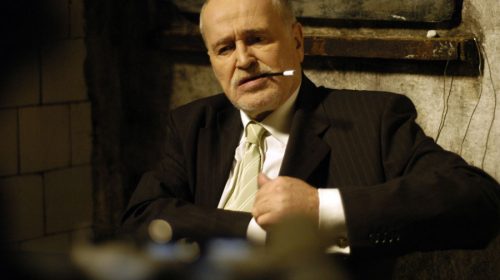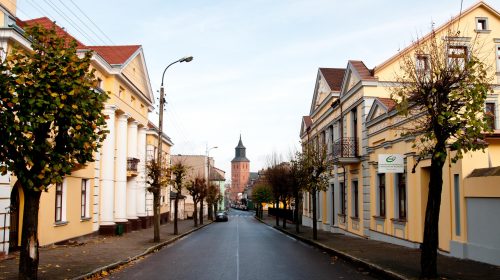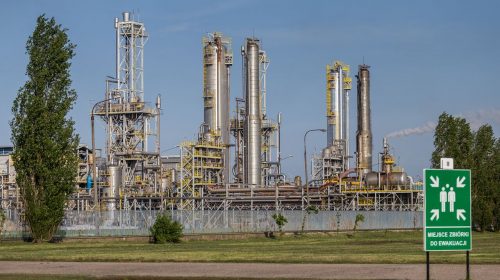Kowal is a charming little town in the South-East part of Kujawsko-Pomorskie, adjacent to the Gostynin-Włocławek Landscape Park.
The town was first mentioned in documents on 20th January 1185, although the date of Kowal’s being granted its borough rights remains unknown.
The town can boast about and take pride in two famous people who were born here: one was King Król Kazimierz Wielki, and the other Jan Nowicki, an outstanding Polish actor.
The first of them was born in Kowal on 30th April (or 3rd April, as some other sources claim), 1310, and happened to be the last monarch in the Piast dynasty to sit on the Polish throne, whose reign is summarised in the saying “when he ascended, Poland was wooden, when he left us, it was from stone.”
To commemorate the 700th anniversary of his birthday, a new park was established and named after him – it is now the pride of the city. As part of the celebrations in the jubilee year, gilded copies of the royal regalia: the orb, the sceptre, and the crown, were brought to Kowal, and a monument to Kazimierz Wielki was unveiled. The statue is 7 metres high, including the pedestal, and constitutes the largest monument in Poland made of a single granite block. It was designed by Artur Jeziorski, an artist from Kowal, and crafted by sculptor Tadeusz Biniewicz.
The other famous Pole, who comes from, and frequently returns to, Kowal, is actor Jan Nowicki. He is both a film and theatre actor. He has become a living legend of the Polish artistic scene. Jan Nowicki has been featured in over a hundred films, and several-dozen theatre plays. People often call him the Wielki Szu (Big Shu) of Polish cinema, which he owes to the cult role in the film by Sylwester Chęciński. Jan Nowicki is also considered to be the first heart-throb of Polish cinema. He is a graduate of the AST National Academy of Theatre Arts in Kraków.
His big screen début came in 1964, in The First Day of Freedom by Aleksander Ford. Two years later, he played Captain Wyganowski in Andrzej Wajda’s film adaptation of Popioły (The Ashes), a book by Stefan Żeromski. He appeared in Family Life (1971) and Spiral (1978) by Krzysztof Zanussi, in The Third Part of the Night – the cinema début of Andrzej Żuławski, in The Hourglass Sanatorium by Wojciech Jerzy Has, based on prose by Brunon Schulz, in Zmory/Nightmares by Wojciech Marczewski, and in Golem by Piotr Szulkin. In Revisited (2009) by Krzysztof Zanussi, he returned to the role of Marek Sobota from Family Life. He played in four films by Filip Bajon, namely Bal na dworcu w Koluszkach/The Ball at the Koluszki Junction, Poznan 56, The Spring to Come, and Magnat/The Magnate, in the latter of which he partnered up with Toruń native Bogusław Linda.
Since 1999, Jan Nowicki has been a honorary citizen of Kowal.



